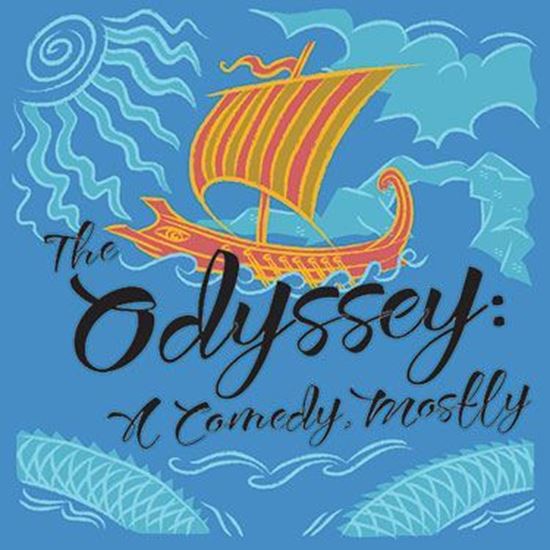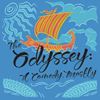



The Odyssey: A Comedy, Mostly
“The Odyssey: A Comedy, Mostly” is an adaptation of Homer’s The Odyssey. It follows the well-known story of Odysseus’s journey from the battlefields of Troy back home to Ithaca and features familiar characters such as Odysseus, Athena, Poseidon, Circe, Penelope, and the Cyclops. The play was written with casual and modern language and a comedic tone, but it involves some dramatic moments and routinely breaks the fourth wall. About 90 minutes.
Productions
Behind The Scenes
With Playwright Julia Romano
What inspired you to adapt this play?
I have been a high school English and World History teacher for six years, and one topic that always grabs students’ attention is Greek mythology. I adapted "the Odyssey" into “The Odyssey: A Comedy, Mostly" so that the students in my drama club could immerse themselves in a subject they loved while expanding their comedic (and sometimes dramatic) skills on stage.
What's your favorite part or line in the play? Why?
My favorite part of “The Odyssey: A Comedy, Mostly” is undoubtedly the Sirens’ song. I had initially written it as a serious scene, but one of my actors—a drama club newbie—decided that the sirens should be ugly and terrible singers. He and his fellow siren came up with wild costumes, choreography, and even ad libbed some lines, all without my knowing until the dress rehearsal. The change in tone was hilarious and far better than what I had envisioned; for me, that scene now represents the magic of actors interpreting a script in their performance.
Tell us what makes this adaptation different from others?
There are many adaptations of “The Odyssey,” but this one is unique. First, as you can guess from the title, “The Odyssey: A Comedy, Mostly,” is indeed a comedy (mostly). I wrote it to sound like my students, so the jokes feel natural during performances. There is room for physical comedy too, if the actors are into it. Second, this adaptation pays homage to the chorus of Ancient Greek theater by breaking the fourth wall often; not just by the “Coras” (the Chorus; Cora also means Girl in ancient Greek) but by other characters too. People love when actors break the fourth wall, and it went over well in our production. The source material may be 3,000 years old, but there is nothing dry about this adaptation.
What did you try to achieve with this adaptation?
My goal was to make an ancient text accessible. As an English teacher, I know that background knowledge and interest improves reading comprehension. Through this play, young actors now know the main players and the general story of “The Odyssey” and may feel more comfortable and curious about reading a 3,000 year old epic poem. Homer’s works are challenging, but his stories, themes, and characters are pervasive in Western literature and culture, and as such, young readers should feel that his stories--and ancient texts in general--belong to them too! I found one of my actors reading my copy of “The Odyssey” backstage in between scenes, so I think I succeeded!
Do you have anything else you'd like to add?
As the director of a Drama Club, flexibility matters a lot to me, and I wrote the play with that in mind. There are 29 characters in total, but the play can be performed with as few as 13 actors, and options for double casting are listed at the end of the script. Many of the parts are also flexible gender-wise: Odysseus, Eurylochus, Agamemnon, and one of the “Men” were played by girls in our production. There are characters written for both new actors and more seasoned performers to accommodate the variability of experience in a drama club. And while there are nine scenes, most of the scenes have set pieces that can be reused in multiple contexts to accommodate a variety of budgets.
In the Athena/Poseidon rivalry (in this show and beyond), I am staunchly Team Athena.
